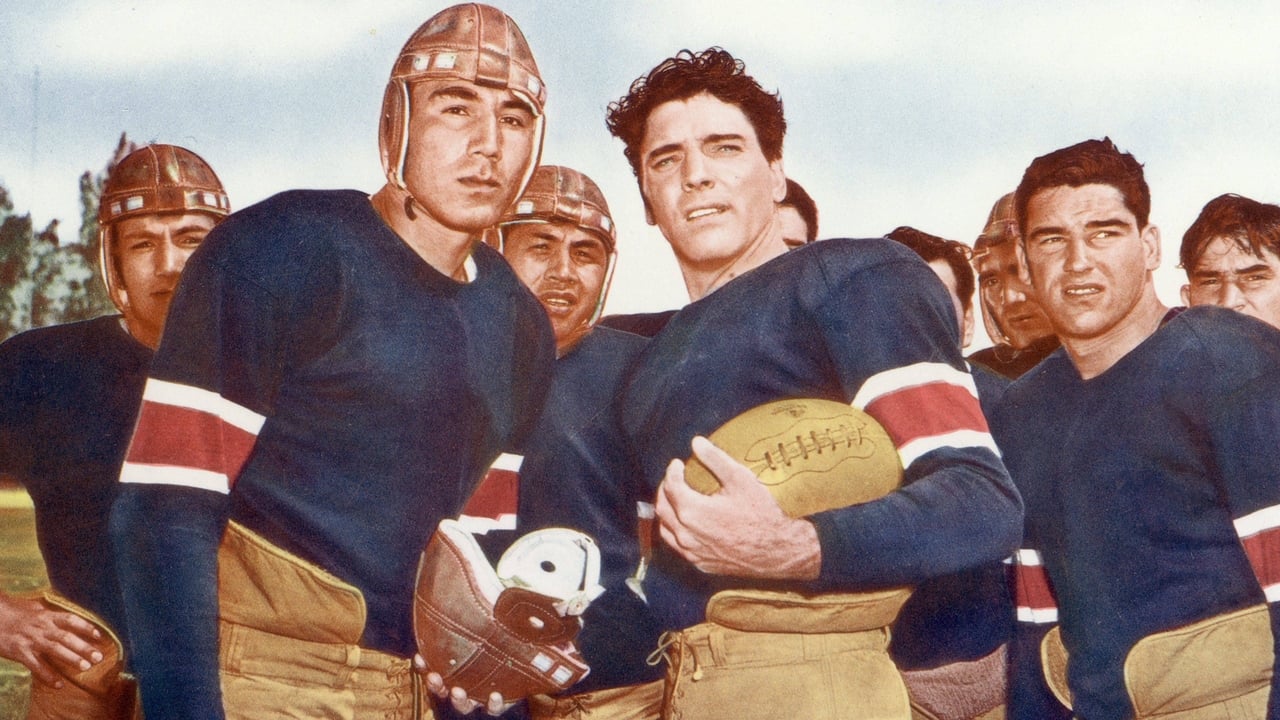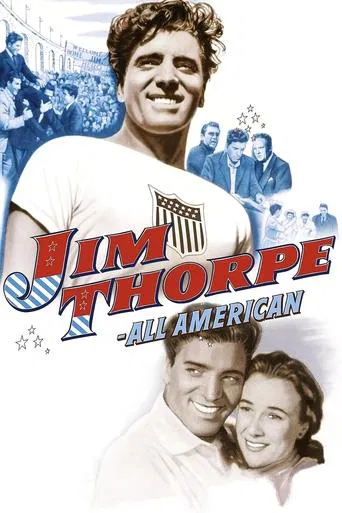

Fantastic!
... View MoreExcellent, Without a doubt!!
... View MoreA film with more than the usual spoiler issues. Talking about it in any detail feels akin to handing you a gift-wrapped present and saying, "I hope you like it -- It's a thriller about a diabolical secret experiment."
... View MoreA movie that not only functions as a solid scarefest but a razor-sharp satire.
... View More. . . their medals, when Jim Thorpe's remain stolen? Any country with an ounce of guts would refuse to participate in the Olympics--OR GIVE THEM ONE THIN DIME OF TV RIGHTS MONEY--as long as this travesty continues. As this movie proves, the removal of his medals destroyed Jim Thorpe's life. He lost his sobriety, the life of his son, his career, and his marriage after they were taken away. Instead of living out his time on this earth as a revered honest Indian elder, he was hounded from team to team by scandal, a drunken wreck. Meanwhile, the East German swim Frankenfrauleins of the 1970s were pumped full of steroids--and everyone knew it at the time! The much better skilled American girls lost their only chance for greatness, and the German weaselettes are still basking in their ill-gotten golden glory--even after everyone has admitted the con and snickered all the way to the bank. Either give the German Olympic program the "death penalty" for the next 20 years, or give those medals to their rightful winners, the American gals! And while they're at it, return Jim Thorpe's, too! Whatever little peccadillo some jealous snitch may have alleged doesn't change the fact that the King of Sweden said Jim was the best athlete of all time--how can a few cigar-chomping stuffed shirts be allowed to second guess the KING? Jim was NOT pumped full of steroids, either--just all-American burgers and fries! Watch this movie--then write a letter to your U.S. Congressman. I sure did.
... View MoreThe movie itself isn't outstanding in any way. Michael Curtiz, the director, keeps the bodies in motion and wastes no time on pretentious touches. Burt Lancaster is solid without rising above the rather banal script, in which Jim Thorpe, a Sac and Fox Indian, starts out an impoverished kid on the reservation, rises to athletic stardom at Carlisle Indian School, goes on to win a bunch of hard-earned medals at the 1912 Olympics (in which George C. Patton was a member of the boxing team), marries the girl he's always loved, has a child on whom he dotes as the reincarnation of his self, and then -- one by one -- loses it all.One can hardly blame him for his downward slide. His Olympic (or Olympian) feats are nullified because he played baseball for money during a summer vacation from Carlisle. Along with them goes the coaching job he's been hoping for. His beloved son dies later. His bitterness drives away his wife -- for good. He soldiers on, playing professional football, but for less prestigious teams and lower salaries. Like the rest of us, as he grows older he loses his stamina until he can't find any work in sports. He plays host at a marathon dance in the 1930s dressed as a cigar-store Indian. He alienates his few remaining friends, including his college coach, Pop Warner (Charles Bickford), who gave him his start.Finally, he drives a truck over a football belonging to a gang of kids, gives them a new football and teaches them the elements of the sport. "Gee, thanks, Coach," says one of the kids. A broad smile spreads across Lancaster's face when he's so addressed and he -- in the words of Pop Warner -- "finds himself." The final scene has him being honored at a vast reception, looking gray at the temples, neatly dressed, grateful and distinguished. The applause deafens the listener.It's something of a cop out, that ending. Not just because the real Thorpe never managed to climb out of one of the lower socioeconomic classes, but because it panders to an audience that wants a typical Hollywood happy ending, or at least an ending ambiguous enough to suggest ultimate redemption, like "Young Man With a Horn," about a Bix Beiderbeck character. Hardly any mention is made of alcohol.The ending makes no sense. How does an individual "find himself." What does it MEAN? It's like saying that someone "got in touch with his feelings." And after having been a winner in grueling competitions like the Pentathlon and the Decathlon and having become world famous, meeting with the King of Sweden, and relishing it, are you really saved if a handful of raggedy slum kids call you "Coach" and run away after you kick their new football in their direction? Thorpe became a big, shambling wreck and picked up a few bit parts in Hollywood movies. If you want to see what he was like in the late 1940s, watch the scene in John Ford's "Wagonmaster" in which the LDS members dance in a circle with the Indians, and Ward Bond looks up with awe at the giant next to him.The soft landing notwithstanding, it's an exciting movie, and an exhilarating one. Great to see Burt Lancaster in the track and field events. (He didn't play football and wasn't much at baseball.) Lancaster was as fit as a fiddle. He kept himself in shape through regular exercise and practice. He never lifted weights so he was sinuous rather than muscle-bound like some screen narcissists.Being a hero is a tough row to hoe, or at least I would imagine. Not only is it tough being an athlete, but it raises the question of what you do for an encore. Like ex-presidents, ex-athletes must have a difficult time dealing with the discrepancy between what they once were and what they now are. Perhaps wisely, this movie focuses mainly on what Jim Thorpe was, and gives us a foolish ending so that we can walk away from the film feeling all warm inside. To treat Thorpe's later career seriously would involve a very different kind of movie.
... View MoreEntertaining telling of the Jim Thorpe story, but mostly pure Hollywood (as was common at the time). Despite stating that Thorpe was a consultant, it contains many inaccuracies and glosses over a lot. It's a good introduction to the greatest natural athlete of the 20th Century, but needs an up to date, more factual account of the Carlisle experience, the issue of professionalism in amateur sports of the era and Jim's role in it, and Jim's life after Carlisle. Until that time, enjoy the story with all its limitations, then go read a current biography like "The Real All Americans" by Sally Jenkins to get a picture of Jim, his achievements and life at Carlisle Indian school.
... View MoreBurt Lancaster and Charles Bickford give convincing portrayals as Jim Thorpe and Pop Warner respectively. It is too bad that Indians could not have played many of the characters but then this was 1951. Thorpe himself was an advisor bringing credibility to the film related to its accuracy.
... View More